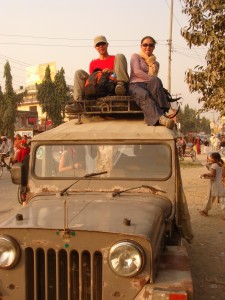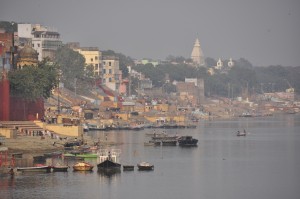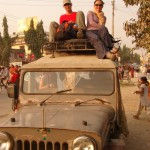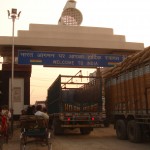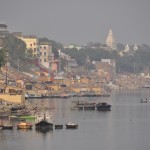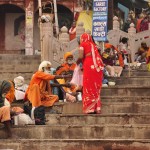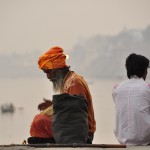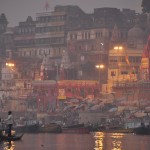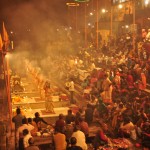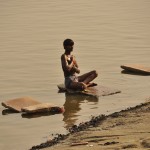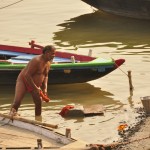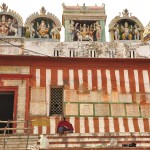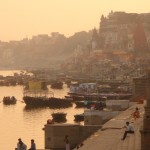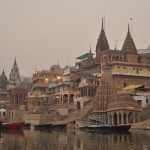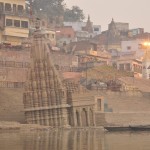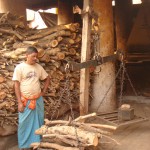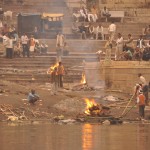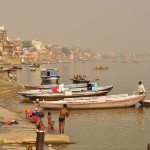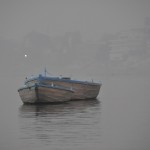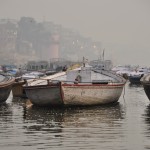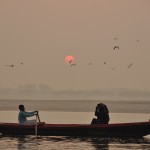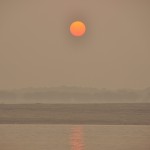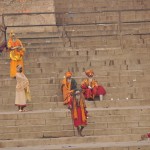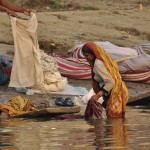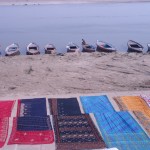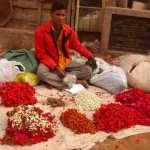Vipassana – Buddha’s detox for the mind
![Vipassana – Buddha’s detox for the mind Every now and then, you chance to do something that throws up a challenge to that cosy, known, predictable procession that is everyday life. A […]](http://meltingplots.com/wp-content/uploads/2010/05/buddhaTop.jpg)
Every now and then, you chance to do something that throws up a challenge to that cosy, known, predictable procession that is everyday life. A 10 day silent meditation retreat in an ashram in the middle of India promised all this of course, plus a little bit more. In actuality though it managed to not only deliver the profound personal inspiration I was seeking, but also impart a deep cultural experience and still provide enough material for a serious horror movie script to boot…
The Preamble
I seemed to have been following in the footsteps of Buddha for sometime now. 8 years of living in Japan was a good start and combined nicely with our recent adventures through Thailand, Myanmar, Laos and Nepal, all major Buddhist societies. We had visited Buddha’s birthplace in Lumbini in Nepal and where he reached enlightenment in Bodhgaya, Northern India, but in all my reading, knowledge, experiences and interactions with both the religion and people, I had never really sat down and tried to practically experiment with it.
Now I am not a religious man, a little too rational, egotistic, scarred or sceptical for the great ‘leap of faith’ that seems to be a pre-requisite for the major creeds I think, though I can certainly respect people’s own individual beliefs that way. I do however have a strong belief in the metaphysical and higher plains of consciousness and also the inner confidence that we have the potential for far greater evolutionary steps. And as with the philosophies of the great yogi’s, Buddhism has always appealed to me this way – the power of meditation to awaken mans potential within, to form a union with the universe and transcend it – it all just seems to speak truth and flow logically for me somehow.
So Vipassana is the Buddha’s gift to mankind. And while there are many forms of meditation both before Buddha and since, Vipassana was specifically his technique – provided and taught to the people of India by him during his lifetime as a way to gain control over their own minds and ease life’s suffering & misery. Lost to India for a long time, it was preserved in Myanmar in its original form and brought back to India by Goenka in the 70’s and now is sustained and taught in retreat centres all around the world. The 10 day, silent meditation course we embarked on was really just an introduction to this technique, but a chance to experience an aspect of Buddhism first hand. For me (and to some extent Megumi), it was a first really deep dive into the world of meditation and something we had been eagerly anticipating as a natural rounding out of our Buddha trail, Indian and Yogic experiments and experiences.
The Set-up
We had chosen to do the course in Hyderabad almost completely at random. It was a way to give us a destination really, to both compliment and complete our travels. Placed at the centre of India, Hydrabad is very much a melting pot for India’s tribes and a little more off the tourist trail which enhanced its appeal.
As we arrived at the centre on day 1, down a dusty, dry road about an hours drive out of the city, an old Indian guy at the entry gate was giving an Irish guy Justin, a quite serious once over on whether he was really committed to seeing out the program. It seemed funny at the time, but was a warning shot that resounded slightly more ominously upon later reflection. Once through the gate, the compound was segregated into men’s and women’s areas complete with separate dining areas, dormitories, common areas & separate entrances to our shared meditation halls. At this point, Megumi had to jump the fence into her own quarter for registration. As we said our goodbyes, the first physical separation since the start of the trip, it started to hit home and I turned to the registration task with a little apprehension. Together with Justin, we then embarked on a series of entry procedures filling in numerous forms / waivers, handing over valuable possessions, organizing storage for our books, pens & other distractions and also receiving room allocations. A sombre bureaucratic atmosphere had taken hold and the process began to ominously resemble entering prison. Had they ask us to strip for delousing, I would have fled!
In total there were 120 other inmates, 80 odd men and 40 women and somewhat surprisingly only a handful of foreigners; as well as me & Justin, there were 2 other non-Indian men – a young, blonde quite serious Italian and an older French guy, plus a couple of women (Dutch & English) in Megumi’s pen. Unlike the other foreigners though, I missed out on my own room and got billeted with a rather curious 50 year old Indian guy, who spoke only 3 words of English I think. Our room was simple and our 2 mosquito net covered cots were divided by a single curtain down the centre of the room, with a separate bathroom / washroom area. A chronic snorer and 3 am riser (to do his washing!), I later christened my roomie Gollum, for the strange whispered arguments he started having with himself in Tagalu from days 5 or so on in the program.
The program itself was pretty regimented, total silence from the morning of Day 2 to Day 10. Every morning (and every session) we were greeted by bells gonged in our windows to wake us up and get us moving. We got to the mediation hall at 4.30am for a 2 hour meditation session. At 6.30, we had breakfast in the dining hall, followed by an hour break. Then a 3 hour meditation session, lunch and a 2 hour rest, then a 4 hour afternoon meditation followed by a light meal, rest and in the evening, a 1 hour meditation, followed by 90 minute video discourse on the technique & the philosophy before a 30 minute meditation finishing at 9pm.
There were plenty of rules – no talking obviously, but this also was extended to looking at anyone or engaging in any form of interaction, a concept called noble silence. Unfortunately to my considerable consternation throughout the meditation sessions, in this part of India at least, the term ‘noble silence’ does not seem to extend itself to cover both burping and farting. Meals were taken sitting on the floor of the dining hall Indian style. While the food was a bland, humble rotation of local Indian food, it was not tasty, but proved to be quite edible none the less (Apparently spices affect the body and the mind) When I wasn’t eating during the breaks, I was sleeping or meditating in my room and that was that really, there was not much room for anything else.
Getting Inside My Head
10 hours a day is a long time to be roaming in the depths of the mind and the Vipassana meditation program is designed to go in deep, but build up to it in very gradual stages. For the first 2 days, we focused simply on concentrating on our breath and the action of breathing. A skill designed to try to focus on the present and in the process gain control of the mind. The conscious mind hates this and jumps around like crazy, a concept called the ‘monkey mind’. For the first 2 days, I was constantly experiencing random emotional thoughts and reactions to lots of things both in the past or future. For 2 days it seems, I was confused, emotional and agitated trying to fight with the mind to focus on the task at hand. I constantly caught myself dwelling on something, an issue in the past, sharing a room with my flat, what I was going to do after this meditation was over or coming up with a brilliant distracting idea – anything to keep me from being in the here and now. Other forms of meditation gives you a mantra, which makes this easier to do, giving the mind something to focus on. Here though, you patiently had to keep bringing your focus back to the breath from each new random departure. Agonisingly slowly this seemed to get easier and easier and by day 3 I was able to concentrate for a long time at a stretch, without the random interruptions.
For the next few days, we were then asked to switch focus, in order to help concentrate the mind. This was done by focusing on feeling the breath at the very tip of your nose in the triangle down to your bottom lip. Apparently your mind naturally thinks on things at a macro scale, so in order to go inwards for Vipassana, you first need to re-train it to focus on more subtler, micro sensations. As tedious as water torture, drip by drip, this is just as effective. After the wild mood swings of day 1 and 2, by day 3 and 4 I was feeling quite peaceful and the mind started to become particularly sensitive to the touch of every breath and I started to uncover new sensations. Which is just as well really, because by day 3, the physical torture of sitting for 10 hours a day starts to become unbearable. From 30 minutes in a seating position to start with, by day 3 this has regressed to 5 minutes in a series of positions that I moved through quicker a quicker, like a dog chasing its tail. I lasted til the end of day 3 before I move to a chair. With some semblance of false pride I noted that the other foreigners have all broken slightly ahead of me or were doing just as badly at least. The French guy had quit already (2 days in), Justin has taken a back rest for his cushion, which he later abandons for a chair and the Italian guy has gone for a chair as well. I last a day and half in the chair before stealing Justin’s backrest – the chair was causing me even more pain.
On Day 5, minds focused and now concentrated, we finally start the actual Vipassana meditation. This part is a lot more complicated to explain, so give me some creative license here. Vipassana is introduced as a surgical like process where you expand your new awareness out to your entire body. Moving slowly, you start to become aware of hundreds of small sensations all over and objectively (this is the most important word here), you start to observe them, both the positive and negative sensations. An observation process that over time, through careful non-reaction, works to remove many of the cravings and sufferings (which is what the sensations represent), all embedded deeply within the human mind and the primary cause of our unhappiness. Hard to swallow (or explain simply) I know, but this is the technique Buddha came up with and its been working for thousands of years.
On day 6 pondering these things, I have my AHA moment. We retire to a private meditation cell (a small 1m x 2m windowless room) and suddenly I am able to really tune into my entire body, and have sensations tingling from head to toe. As I focus in on the sensations I feel the tingling grow and become almost a uniform energy or pulse across my entire body, the flow builds to a creshendo and suddenly I become aware of my body as being made up entirely of vibrations and experience a sensation of peace sweep over me, an awareness of myself as becoming like light. I experience the truth that my body consists purely of vibrations and feel a lightening / awareness of myself existing beyond time and space. I expand upwards, relishing this awareness and sensation, vaguely conscious of my actual body as a shadowy meditation pose much further below me. In total this altered euphoric state lasts no more than a couple of minutes, leaving me very slowly, I fade back to the floor unable to resist and keep the moment, the sensations though lingering on.
Which is where things suddenly got a lot more interesting! Here I had, had an experience that was very exciting and obviously opening doors at a higher conscious level, I wanted more of it, to go deeper, but I also felt that I had wandered off radar from the courses objectives, I was operating outside the textbook so to speak and had started craving an experience of my own making, cravings being exactly what we had been told to avoid. I consulted Guruji, an old Indian chap who was presiding over all the inmates and the only one we were able to actually converse with. He told me that this was positive progress and that the experience was simply a release. But I went away somewhat conflicted not sure he had really understood my experience. I still felt discouraged and that I had tried to do something a little off the charts so I consciously shelved this area of exploration reluctantly and went back to the program of simply feeling sensations.
Now, I had been detecting some sensations that manifested themselves as tiny crawling sensations on my body & being objective means not reacting to the various tickles, stabs of pain or euphoric tingles that these sensations give off. So for the next 3 days I focused on exploring these and in the process delving deeper & deeper into my psyche. Dark worms that gave electric shocks, thin insects that wiggled and tingled and the occasional fairy puff of pleasure. How my mind chose these manifestations I don’t know, but I was in deep here. Many of these sensations were lying deep beneath the surface of the face and at times I could feel my head as a complete cup of insects and their resultant sensations struggling to get out. Objectively I watched and appraised them, trying not to feel any emotion or so I thought, waiting for each to emerge one by one in my minds eye and in the process goes the logic, dispense with another deep attachment.
After several days of this torture, the lectures started to reveal that my earlier euphoric experience had actually been right on track that we were supposed to be working towards to feeling sensations at every level of the body and in so doing experience a free flow of energy throughout, I realized that I had just jumped far ahead with my own experiences. I was also starting to feel frustration with the ‘insect mining’ that I was currently doing and these worries started to permeate the process I was going through. Unable to switch off the awareness of the senses and very deep in by now, I continued to feel the creepy, crawling sensations on my face and could not get past it to recapture the free flow of energy. The bugs kept crawling even when we stopped the mediations, during meals (and for several days afterwards).
Everyone’s experience is different I guess and everyone has their own demons and manifestations. If this process was easy, we would all be running around on Cloud 9 and blissfully free of the worlds problems. But hindsight is equally a wonderful thing, and I now realize I went a little too deep and somewhere along the line I started to become too aggressive with the sensations I was feeling, perhaps frustrated by the misdirection of my own progress. I began trying to force the sensations to reveal themselves and exterminate them, rather than simply observe – a reactionary affect that just multiplied the sensations themselves, dug them in and made them worse and in so doing creating a block.
To be honest, as the 10 days of meditation came to an end, I was far from relaxed and getting completely worked up about the bugs in my system. And as the program ended I felt a little disappointed. I guess I was expecting things to be more completed, more defined, perhaps ecstatic – yet I felt I had only just started to grasp the process and had achieved little. Yes, I had had, several moments of higher awareness and had gained an invaluable understanding of my mind, conscious thought and the overall process, but my over-riding sense was more one of confusion and a weird preoccupation with the insect like sensations. This is dangerous territory and I can easily see how people can open themselves up to all sorts of dangerous obsessions & psychosis here. The ego and competitor in me, wanted to feel some resolution that I had cleaned everything out, reached a certain level with this and pushed the point. At the end I really I just wanted the crawlings to stop and if that mean’t the meditation as well, then fine.
And as the insects slowly slipped away over the coming days (I became afraid to close my eyes), I did come to feel a very subtle overall increase in my personal sense of peace and control from the experience. I realised I had gained a lot from the first few days alone and I felt different now, albeit subtly so. While on one hand I had wanted it all to end, I also wanted to start it again, to retrace my steps so to speak with more equanimity and see where I could really have gotten to. The physical side of the meditation while still uncomfortable but had become quite secondary to the overall experience, my attention was focused much deeper in now..
Apart from the insect horrors though, the experience itself was fascinating. While I tried desperately to ignore Justin and the other foreigners attention for my own sanity, I naturally turned my attention to the other Indians, observing everyone’s idiosyncracies in ‘oh too close detail’. From the endless stream of bodily noises that seemed strangely socially acceptable, to my room-mates psychotic late night mutter arguments as he battled his own demons (if I was seeing insects, I can’t imagine what he was fighting off!), the whole experience was a fascinating insight into everday Indian living and lives. The complete diaspora of Indian society seemed represented here – from old folks with obvious health issues seeking some kind of peaceful reckoning to young kids with the attention span of a gnat obviously forced to be here and to the more mature seekers in between. And then there were the women, always resplendent in their Sari’s, somehow always looking more composed and able to concentrate than any of the men. Megumi for one, had managed to completely avoid eye contact with me the entire time and always seemed to be in a perfect state of meditation and posture.
And as the silence gloves came off on the last day, I reconnected with Justin and Megumi and some of the other meditators that were obviously resonating on the same level as us. As we shared experiences (and nightmares) and the shared joy of survival, I realized that this was something I needed to do again. Next time though armed with more information and experience, I was confident there was a lot more to do and that this was only just the start of something. I left feeling sharper and more aware of myself than ever before, but still with many things unresolved and those damn insects…….!
NB: 6 weeks later neck deep in Africa I had a recurrence of the middle eye infection that had first cropped up in India, though this time it almost left me blind. I realized it was the same left eye that had tortured me during meditation. Can’t help thinking the bug action wasn’t just a simple coincidence!
![India – The Sights It appears that detailed, timely blog postings on our adventures has proven to be a most elusive skill so far in our travels. So… in […]](http://meltingplots.com/wp-content/uploads/2009/12/DSC79471.jpg)
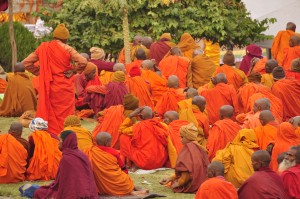
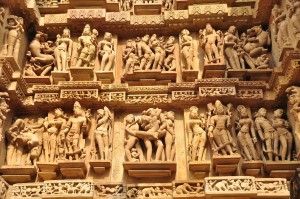
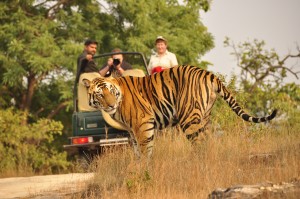
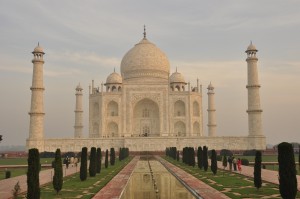
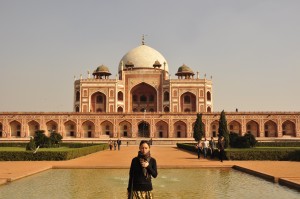
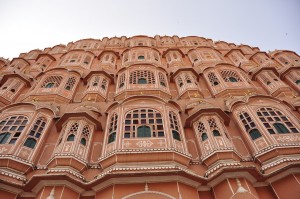
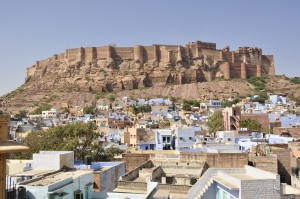
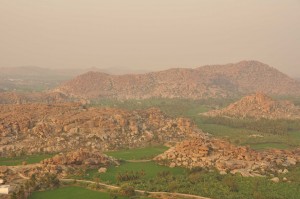
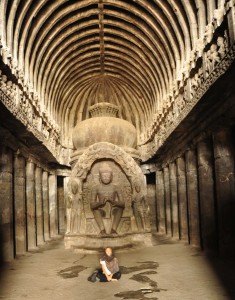
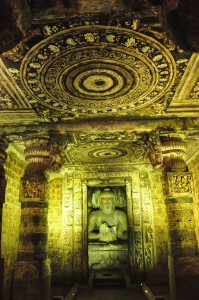

![A Pilgrimage to Goa Goa, famed for its beaches, Portugese influence and hospitality is India’s favourite holiday destination and one of those places that has loomed large in my […]](http://meltingplots.com/wp-content/uploads/2010/02/Goa_effect.jpg)
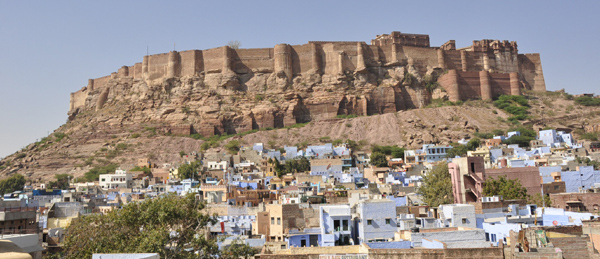

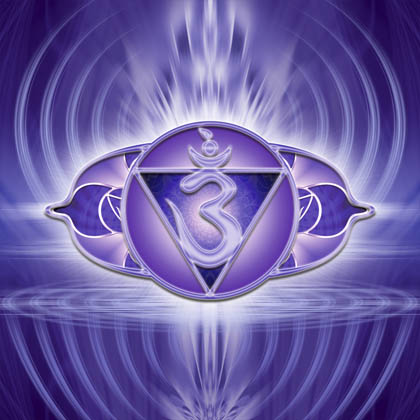
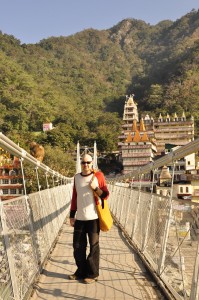
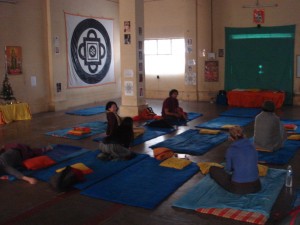
![A Delhi Blinder Strange times these – somewhere in Mayheya Pradesh on a tiger safari, I developed an irritation in my left eye, nothing serious or so I […]](http://meltingplots.com/wp-content/uploads/2010/12/Eye_top.jpg)

![Encountering India Everyone says that ‘nothing really prepares you for India’, that sprawling explosion of humanity that is sole survivor to the world’s classic civilizations. We approached […]](http://meltingplots.com/wp-content/uploads/2009/12/DSC6521.jpg)
